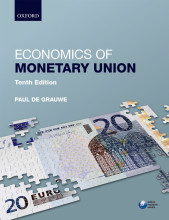European Financial Markets
9 important questions on European Financial Markets
Name the functions of European financial markets
2. trading mechanism
Explain the types of markets in the trading mechanism
! Fragmented, less transparent.
example: bond markets
2 order driven markets: issue orders to buy at stated prices.
call markets - price is determined at a limited numer of specified times
continuous auction market - public investors send their orders to brokers
! Highly formalized
example: stock-exchange
3 hybrid markets: different implications for liquidity & price
Who are participants in the European Financial Markets?
brokers: agents of public investors, profit by remuneration for services
dealers: trade on their own account, profit from trading securities
credit rating agencies: assess the credit risk of borrowers
- Higher grades + faster learning
- Never study anything twice
- 100% sure, 100% understanding
Name the 5 principal financial markets
2. bond markets - debt securities with maturity > 1 year
3. equity markets - firms raise funds by issuing equity that grants an investor a residual claim on the company's income
4. derivatives market
5. foreign exchange market
What are the most important segments in the money market?
2. secured repo market (with collateral, i.e. bonds to mitigate risk)
Repurchase agreement = arrangement whereby an asset is sold while the seller obtains the right/obligation to repurchase it at a specified price on a future date
How does the ECB influence the Euro money market?
2. open market operations: general instruments to manage liquidity & steer interest rates
3. standing facilities: provide or absorb liquidity with an overnight maturity when unforeseen liquidity shocks occur
What are the 3 main market rates?
EURIBOR: interbank offered rate, benchmark rate of the large unsecured euro money market for maturities longer than overnight
EUREPO: for different maturities. The rate at which one bank offers funds to another bank.
What have been developments in the bond market?
- Bond portfolios internationally diversified
- more efficient primary market / deeper, more liquid secondary market
What causes yield differentials?
1) intrinsic differences in country specific default risk or different sensitivities of bond's future payoffs to common shocks
2) market fricitions
recent decline in differentials because:
1. Banking Union
2. more sustainable fiscal policies
The question on the page originate from the summary of the following study material:
- A unique study and practice tool
- Never study anything twice again
- Get the grades you hope for
- 100% sure, 100% understanding
































